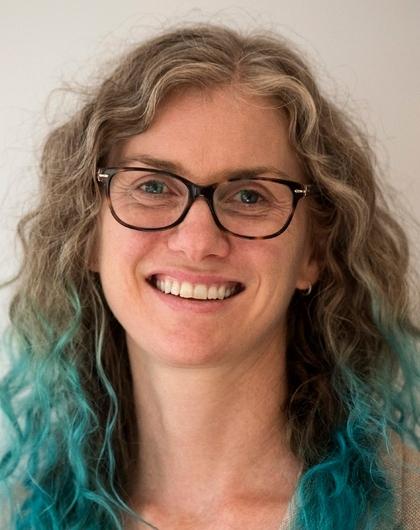Scholars
Lucy M Richardson
Monash University
Based in
Australia
Australia
Lucy is lecturer in the School of Media, Film and Journailsm, and Deputy Director of the Monash Climate Change Communication Research Hub. Her current research focuses on understanding Australian climate change audiences and their responses to messaging, and how the media represents topics relating to climate change. Her broader research interests sit at the intersection of environmental science, communication, and social psychology.
Lucy is co-editor of the Research Handbook on Communicating Climate Change (Edward Elgar, 2020), and teaches the university’s Climate Change Communication unit. She was also a 2021 member of the Commonwealth Futures Climate Research Cohort of the Association of Commonwealth Universities and the British Council.

Country(ies) of Specialty
AustraliaFocus areas of expertise
Communications research Behavioral action Public opinionPublications
Articles
Painter, J., Ettinger, J., Holmes, D. C., Loy, L., Pinto, J., Richardson, L. M., Thomas-Walters, L., Vowles, K., & Wetts, R. (2023). Climate delay discourses present in global mainstream television coverage of the IPCC’s 2021 Report. Communications, Earth & Environment, 4, 118. doi:10.1038/s43247-023-00760-2
Richardson, L. M., Thaker, J., & Holmes, D. C. (2023). Comparative analysis of Australian climate change and COVID-19 vaccine audience segments shows climate skeptics can be vaccine enthusiasts. Nature Scientific Reports, 13, 1118. doi:10.1038/s41598-022-26959-5
Thaker, J., Richardson, L. M., & Holmes, D. C. (2023). Australians’ perceptions about health risks associated with climate change: Exploring the role of media in a comprehensive climate change risk perception model. Journal of Environmental Psychology, 89, 102064. doi:10.1016/j.jenvp.2023.102064
Thaker, J., Richardson, L. M., & Holmes, D. C. (2023). Audience Segmentation Analysis of Public Intentions to get a COVID-19 Vaccine in Australia. Public Understanding of Science, 32(4), 470-488. doi:10.1177/09636625221138494
David Holmes, Brooke Garas, & Lucy M. Richardson. 2022. “Australian newspaper framing of renewable energy: The case of Snowy 2.0.” Environmental Communication, vol. 16, no. 1, pp. 23-41.
Lucy M. Richardson. 2020. “Practitioner engagement with communication and behavioural science research.” In D. C. Holmes & L. M. Richardson (Eds.). Research Handbook on Communicating Climate Change. Cheltenham, UK: Edward Elgar Publishing (pp. 242-255).
Lucy M. Richardson. 2020. “Introduction to climate change communication campaigns.” In D. C. Holmes & L. M. Richardson (Eds.). Research Handbook on Communicating Climate Change. Cheltenham, UK: Edward Elgar Publishing (pp. 212-213).
David C. Holmes & Lucy M. Richardson (Eds.). 2020. “Research Handbook on Communicating Climate Change.” Elgar Handbooks in Energy, the Environment and Climate Change series. Cheltenham, UK: Edward Elgar Publishing.
Lucy M. Richardson & Rebecca Wickes. 2020. “Collective Efficacy.” In L. Spillman (Ed.), Oxford Bibliographies in Sociology. New York: Oxford University Press.
Lucy M. Richardson, Joel Ginn, Annayah M. B. Prosser, Julian W. Fernando, & Madeline Judge. 2020. “Improving research on the psychology of sustainable consumption: Some considerations from an early career perspective.” Journal of Social Issues, vol. 76, no. 1, pp. 150-163.


